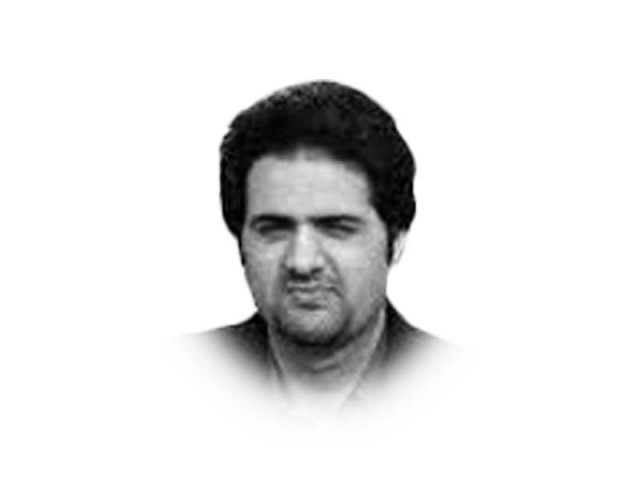American mosques and Pakistani politics
What is happening in Pakistan is on everyone’s mind among the overseas Pakistani community

Politics and religion are usually the two hot topics that can lead to severe arguments and even bloody fights. Nations historically have gone to wars over these two issues. People have killed and died for them. But I observed and realised something interesting last Friday while I was sitting inside a mosque in America during Friday prayers. They never talk about politics. The closest they come to it is when they pray for the freedom of the Kashmiris and the Palestinians. But they tread very carefully and stay away from speaking the truth after they deliver an almost hour-long speech about the benefits of truth and justice.
And once in a while, since this is an American mosque and people know that someone is always watching through informants, I will see brochures being distributed depicting and talking about the plight of the Uighurs in China. There is a weird tendency to only feel sad for the troubles of Muslims worldwide. Sometimes, I want to stand up and shout that the non-Muslims are humans too. I have yet to do that though.
But then I realised that it’s not just the victims that are cherry-picked but also the aggressors. The Muslims suffering at the hands of China are worth talking about but not the Muslims suffering at the hands of Israel or India.
What is happening in Pakistan is on everyone’s mind among the overseas Pakistani community. The mosques we Pakistani Americans frequent are the ones frequented by Pakistanis and Arabs. So, these Arabs and Pakistanis rub shoulders in these mosques and the Imam gives a speech but even when one tries to get them to talk about Pakistan and the situation there, the abrupt reply comes from the managers of the mosque trying to prefer silence over the issue. Their rationale and explanation is that politics is not discussed inside the mosque.
Fair enough. Then why do I keep hearing every Imam reminding us that the politics of the Muslims is derived from Islam and that Islam is not just like any other faith in that Islam also teaches us about the politics, economy, rule of law and other things needed to run a polity and a nation state. Why should religion drive my politics but when my politics is muddied, then religion cannot talk about it? If I keep religion out of politics then the word in English language is secularism but the word in Urdu is laa-deeniyat, which translates as irreligious or without religion. That creates a wrong meaning with some real powder keg aspects in a society like Pakistan. But when I want to insert politics in religion, I am told to keep politics out of the mosque or the religion. Why should it be divorced one way and married the other? Can I call it hypocrisy at the risk of earning the title of heretic maybe? Perhaps, I’d welcome that title by what Bollywood star Aamir Khan called the ‘wrong numbers’ of my religion.
In Pakistan and in many other countries, religion has been used and abused to play politics and maneuver through the political games. The Arabs and the Pakistanis that pray there while listening to the speech by the Imam, who is one of us, were born and raised in societies where religion drove politics. Even in America, where they frequent that mosque, there is arguably equal religious influence over politics, if not more. Yet, while politics can be practised by using religion and playing with people’s faith-based beliefs, faith cannot be brought to discuss political injustices. My politics should have a taste of faith but my faith must stay away from my politics. Makes absolutely no sense.
Published in The Express Tribune, July 13th, 2023.
Like Opinion & Editorial on Facebook, follow @ETOpEd on Twitter to receive all updates on all our daily pieces.















COMMENTS
Comments are moderated and generally will be posted if they are on-topic and not abusive.
For more information, please see our Comments FAQ